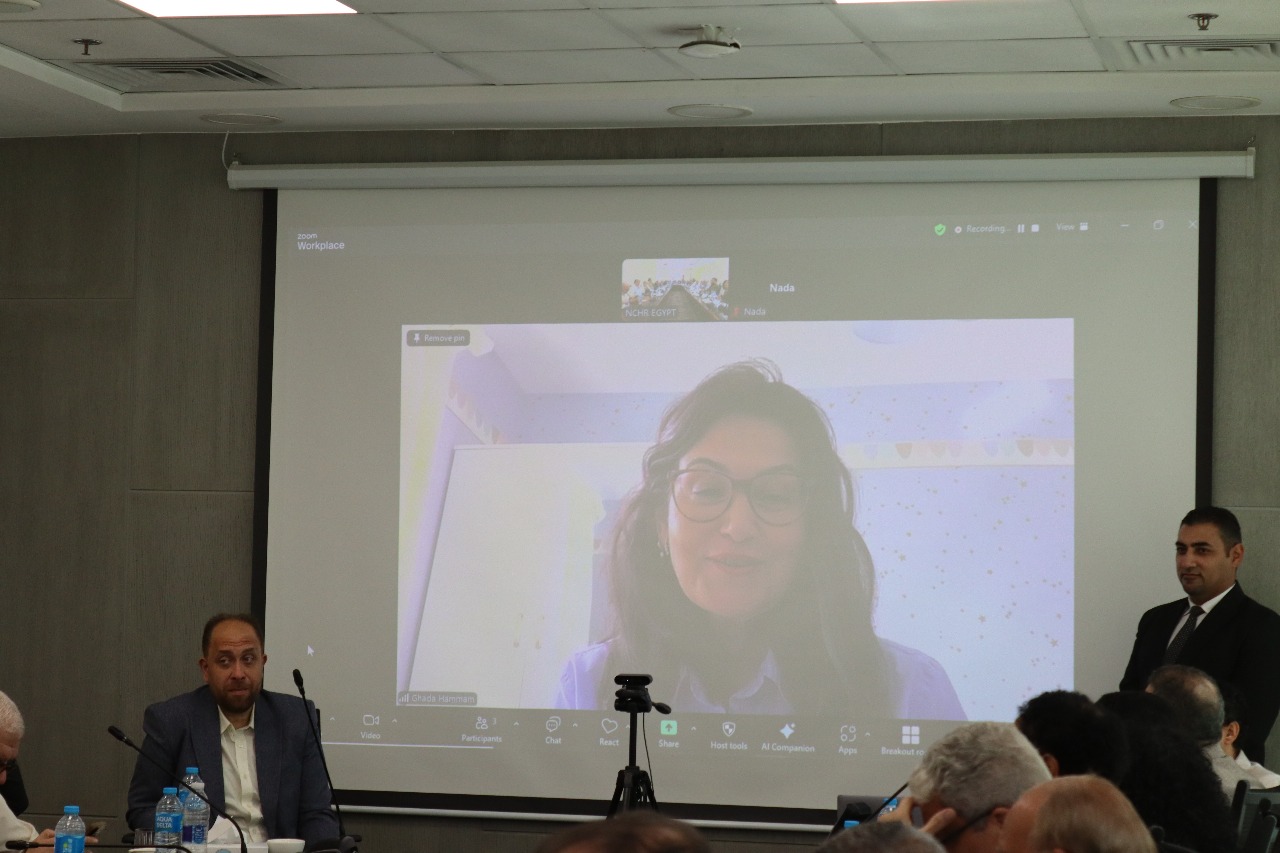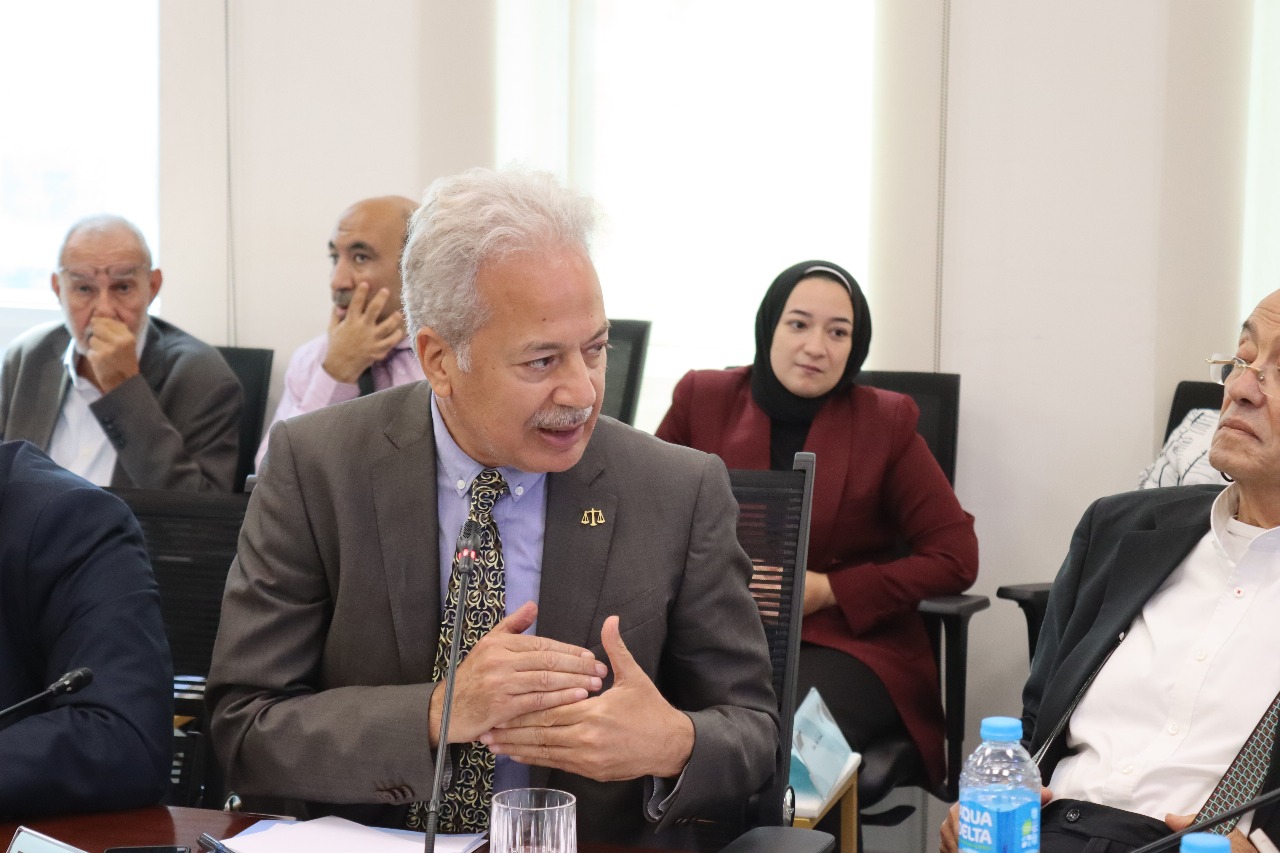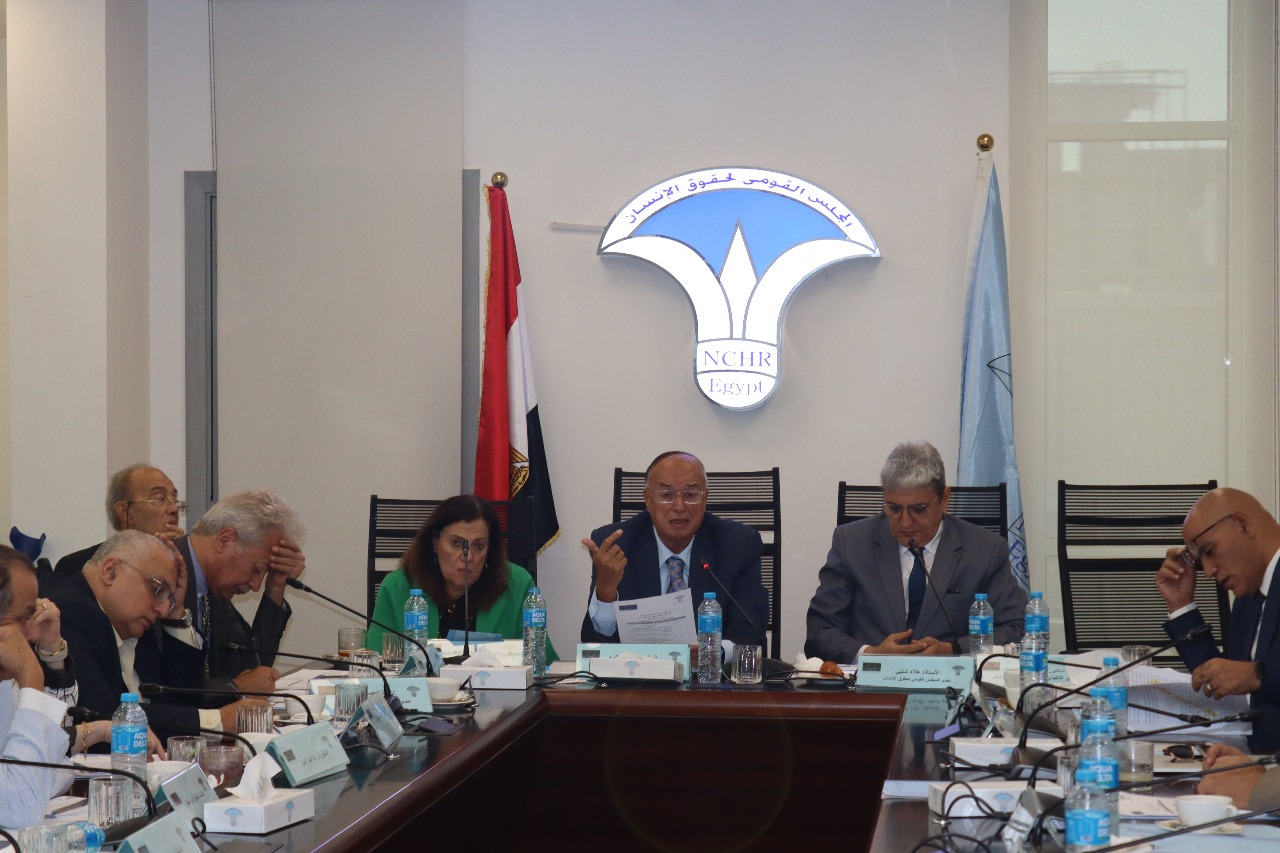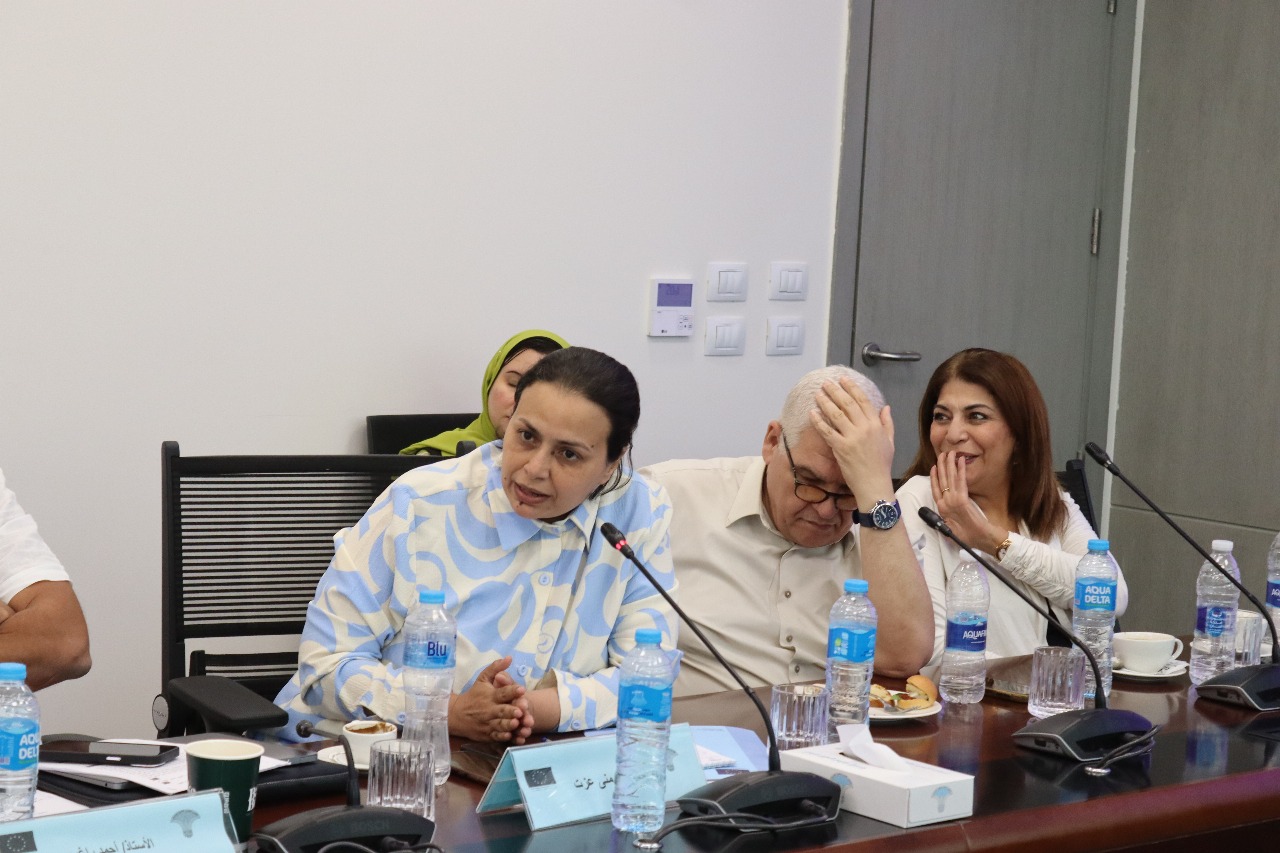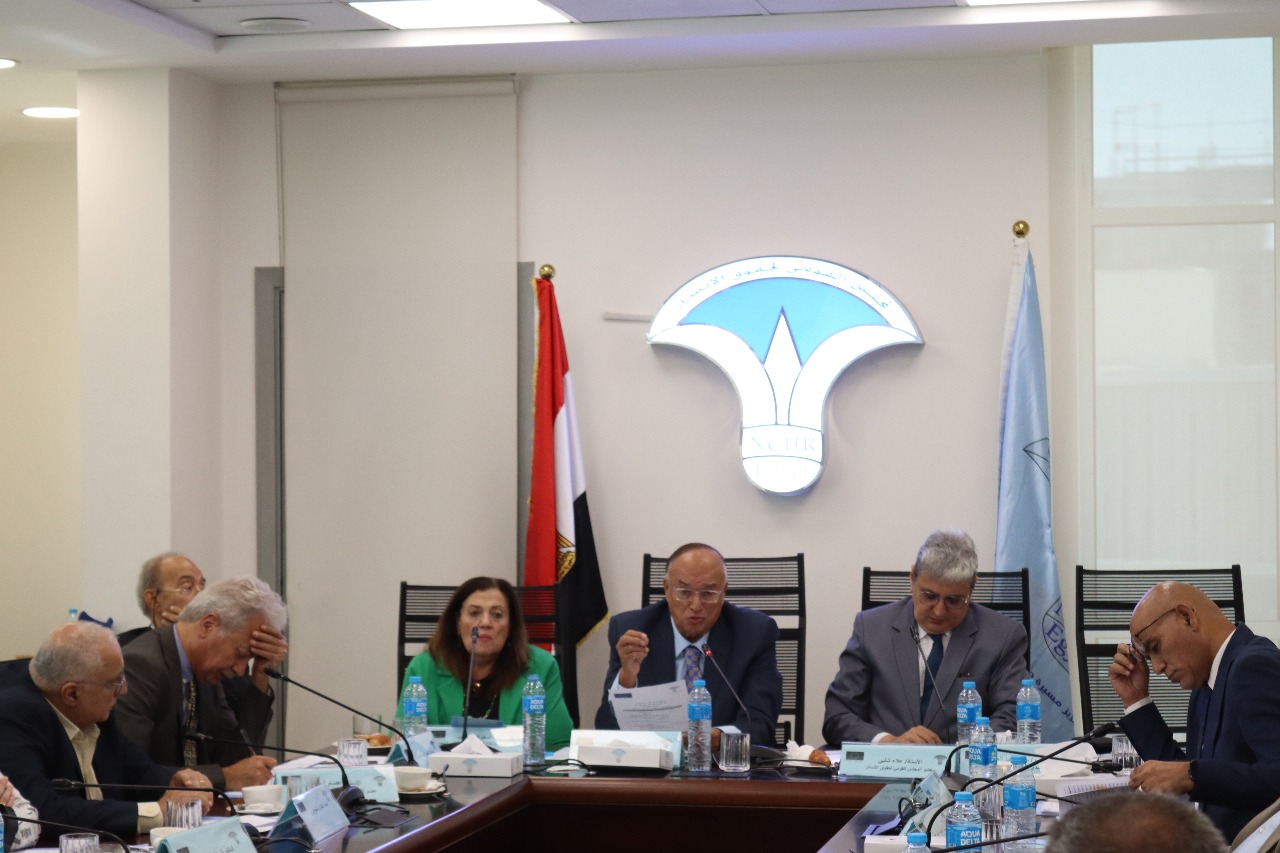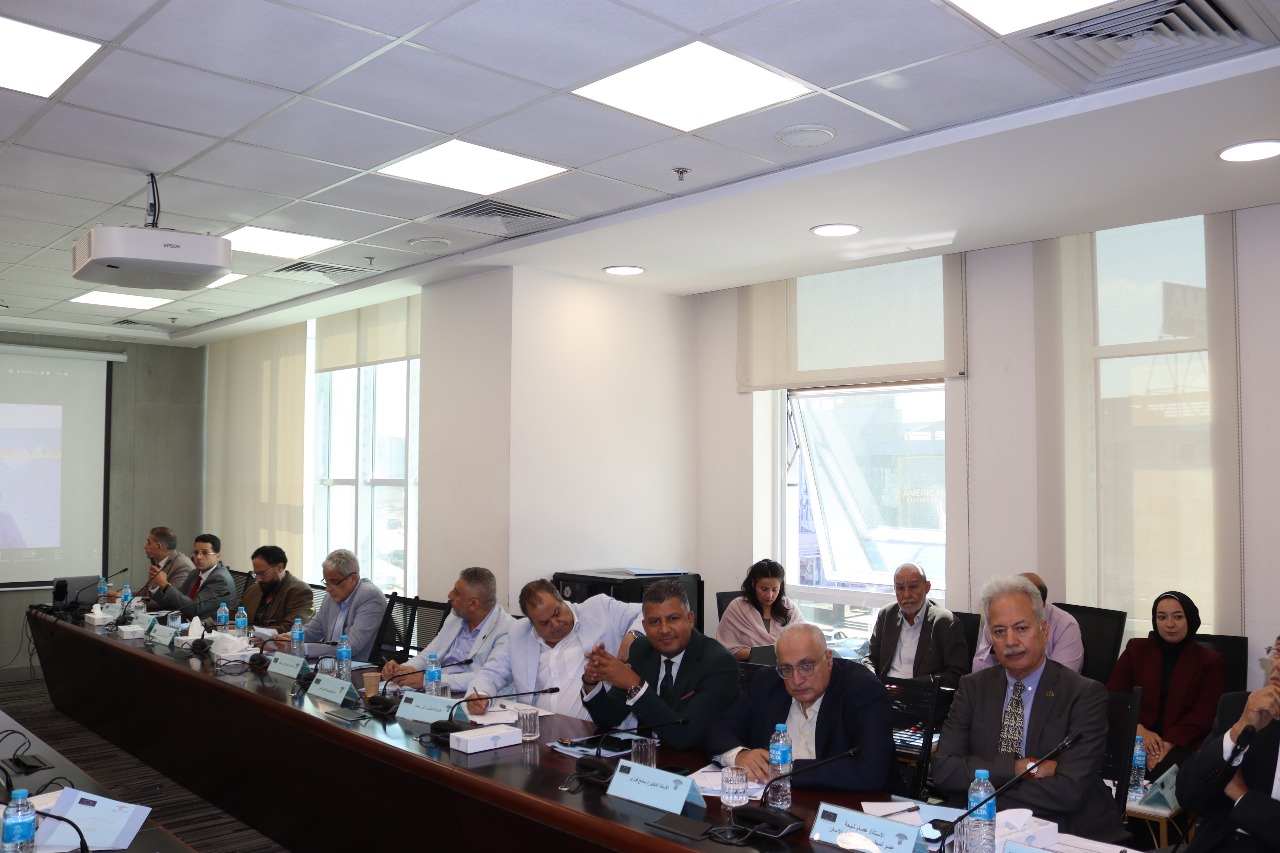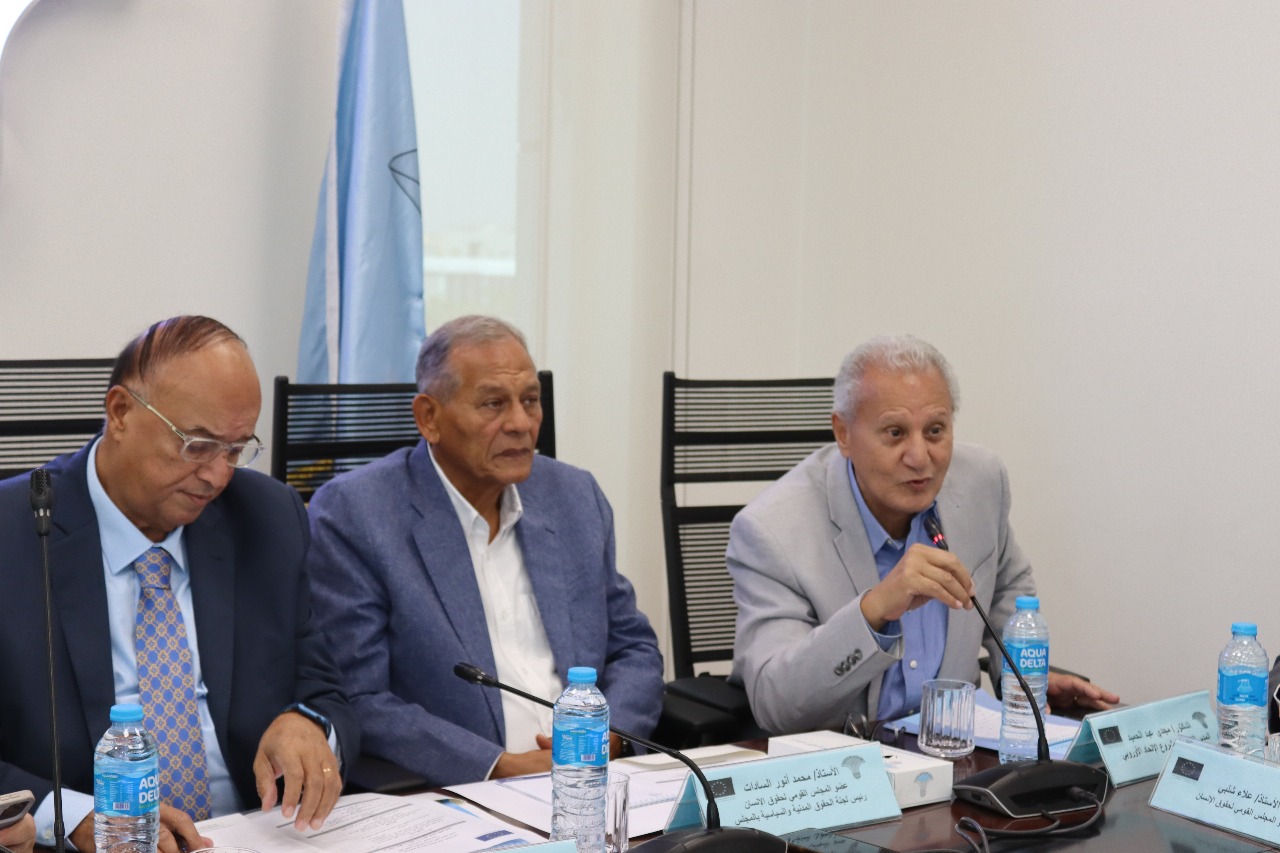NCHR convenes consultative meeting on its enabling law amendments
The National Council for Human Rights (NCHR), in cooperation with the European Union, convened a consultative meeting titled “With Civil Society Actors on the Legal Framework Governing the Work of the National Council for Human Rights: Regional and International Experiences and Lessons Learned.”
The meeting brought together a wide range of participants, including Ambassador Dr. Mahmoud Karem, Chairperson of the NCHR; Mr. Mohamed Anwar El-Sadat, Member of the Council and Chairperson of the Committee on Civil and Political Rights; Dr. Ghada Homam, Member of the Council and Rapporteur of the Committee; Mr. Alaa Shalaby, Member of the Council; and Ambassador Wafaa Bassim, Vice-Chair of the United Nations Human Rights Committee and former Assistant Minister of Foreign Affairs. The meeting was also attended by Council Members Mr. Essam Shiha and Dr. Mohamed Mamdouh.
In his opening remarks, Ambassador Karem emphasized that since its establishment, the Council has worked within a framework that seeks to achieve a constructive balance between protecting human rights, strengthening citizenship, and promoting social stability, in full adherence to the Egyptian Constitution and international human rights instruments. He underscored that amending the NCHR’s enabling law remains a top institutional priority, as part of efforts to reinforce the Council’s independence and consolidate its role as a leading national human rights institution. He added that the ongoing review of the legal framework builds on more than two decades of institutional experience and aims to align the law with international standards, including the Paris Principles, thereby reaffirming the Council’s commitment to its national role in promoting and protecting human rights in Egypt.
Mr. Mohamed Anwar El-Sadat highlighted that the Council continues to hold extensive consultative meetings that are progressively yielding tangible outcomes. He affirmed that the Council’s national mission remains a continuous endeavor that requires sustained efforts—not only in relation to amending the enabling law but also in terms of reviewing relevant constitutional provisions—to ensure that the Council continues to serve as an inclusive platform for all components of civil society. He further stressed that the NCHR remains an open house for dialogue, where all voices are invited to participate and express their views freely, with full respect for diversity and differing perspectives.
El-Sadat also noted that current efforts include administrative and financial restructuring of the Council to optimize the use of available resources, alongside continued monitoring of the implementation of the National Human Rights Strategy, reflecting the Council’s steadfast commitment to protecting rights, promoting citizenship, and consolidating its institutional independence.
Dr. Ghada Homam presented an overview of the Council’s mandate and competencies, reaffirming its administrative, financial, and technical independence and its legal authority to monitor, document, and report on human rights violations, as well as to intervene in civil cases on behalf of victims. She explained that these powers are grounded in a clear constitutional and legal framework, reflecting the Council’s commitment to protecting citizens’ rights, promoting a culture of human rights, and fostering continuous coordination with state institutions and civil society.
Ambassador Wafaa Bassim commended the Council’s efforts in organizing such consultative meetings, noting that they provide a valuable platform for discussing priority issues, including the proposed amendments to the NCHR’s establishing law to ensure its continued relevance amid national and international developments. She emphasized that the recommendations emerging from these discussions will strengthen the Council’s capacity to exercise its legal mandate effectively and to achieve the objectives for which it was established.
Mr. Alaa Shalaby praised the Council’s recent progress in improving the substantive, professional, and media dimensions of its work over the past three months. He noted that the Council has regained its capacity to address key human rights issues with greater clarity and effectiveness, engaging in open dialogue on sensitive matters while expanding consultation with civil society organizations and relevant stakeholders. Shalaby added that the NCHR is reasserting its regional leadership at both the Arab and African levels and broadening its engagement to encompass economic, trade, and human rights-related issues, in line with its comprehensive and forward-looking mandate





 English
English
 Arabic
Arabic
 French
French


